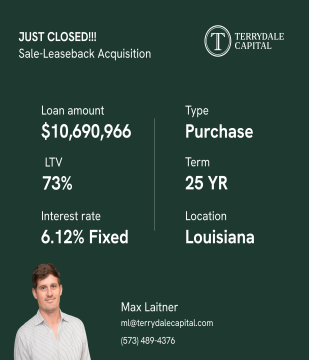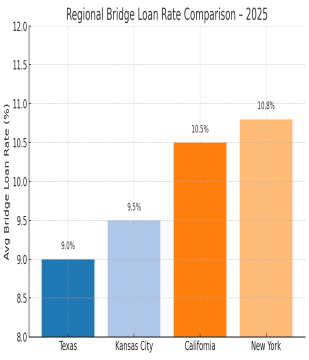Agency vs. Non-Agency Financing 101

Terrydale Capital
Jun 16, 2023 7 Min read
Introduction
Agency and non-agency loans are two distinct categories of financing options available to commercial real estate investors. While agency loans are backed by government entities, non-agency loans are provided through private lenders. Understanding the difference between these loan types is crucial for investors seeking to finance their commercial real estate ventures. This blog will dive into the characteristics of agency and non-agency loans, explore their contrasting features and shed light on how they apply to commercial real estate investing.
Agency Loans: Government-Backed Finance
Agency loans, also known as government loans, are loans that are issued or guaranteed by government agencies. These agencies include Fannie Mae, Freddie Mac, the Federal Housing Administration (FHA), the U.S. Department of Veterans Affairs (VA), and the U.S. Department of Agriculture (USDA). Agency loans primarily focus on residential mortgages, but some agencies, like the Small Business Administration (SBA), offer loan programs for small businesses involved in commercial real estate.
Non-Agency Loans: Private Financing Options
Non-agency loans, in contrast, are not backed by government entities and are provided by private lenders. These lenders include banks, credit unions and non-bank financial institutions. Non-agency loans offer more flexibility in terms of loan amounts, borrower qualifications and property types. They cater to a broader range of commercial real estate investors and projects.
Differences Between Agency and Non-Agency Loans
- Loan Backing and Guarantees:
- Agency loans are backed by government agencies, which provide an additional layer of security for lenders.
- Non-agency loans do not have government backing or guarantees, making them inherently risky for lenders.
- Eligibility Criteria and Borrower Profiles:
- Agency loans often have specific borrower criteria, such as first-time homebuyers, veterans or individuals in rural areas.
- Non-agency loans offer more flexibility in borrower qualifications, catering to a wider range of commercial real estate investors.
- Loan Amounts and Terms:
- Agency loans typically have loan limits and fixed terms determined by the government agency.
- Non-agency loans offer greater variability in loan amounts, terms and repayment structures, providing tailored options for specific commercial real estate projects.
- Property Types and Investment Strategies:
- Agency loans predominantly focus on residential properties, which can include multifamily investment properties. Although some agencies offer commercial loan programs for small businesses.
- Non-agency loans cover a broad spectrum of property types, including office buildings, retail centers, industrial assets as well as multifamily properties.
- Interest Rates and Fees:
- Agency loans often offer more competitive interest rates due to the government backing, but they may come with additional fees and mortgage insurance premiums.
- Non-agency loans typically have higher interest rates but may have fewer fees and more flexible terms.
- Documentation and Approval Process:
- Agency loans often have more standardized documentation and approval processes due to government regulations.
- Non-agency loans can have more varied documentation requirements and approval processes tailored to the lender’s discretion.
Application to Commercial Real Estate Investing
When considering commercial real estate investments, investors should carefully evaluate the implications of agency and non-agency loans:
- Agency loans may be suitable for small businesses seeking financing through SBA programs, investors in tertiary markets seeking financing through USDA and residential investors in the SFR and multifamily space.
- Non-agency loans provide greater flexibility, customization and suitability for investors engaged in more diverse commercial real estate projects.
- Commercial real estate investors should consider factors such as loan eligibility, property type, loan terms, interest rates, fees, and borrower qualifications when selecting the most appropriate loan.
Working with a strong and experienced financial partner such as Terrydale Capital can help investors navigate the intricacies between the types of financing programs and discern which avenue is the most suitable.
Conclusion
Agency loans and non-agency loans offer distinct advantages and considerations for commercial real estate investors. Agency loans provide stability, favorable terms and specific borrower eligibility - primarily in the residential sector. Non-agency loans offer flexibility, customization and broader property type coverage. Selecting the most suitable loan option depends on factors such as investment goals, property type, borrower profile and risk tolerance.
Terrydale Capital is the perfect choice of financial partner to help guide investors in making the best decisions for their investment success. Visit Terrydale Live today where you not only have access to our entire team, but have the commercial real estate market at your fingertips with active opportunities and live rates.
Partner With Terrydale Capital for Your Debt Financing Needs
When it comes to debt financing, understanding the right timing, process, and options is crucial. At Terrydale Capital, we provide a comprehensive range of commercial loan solutions tailored to meet your business's unique needs.

































































































































































































































































































































































